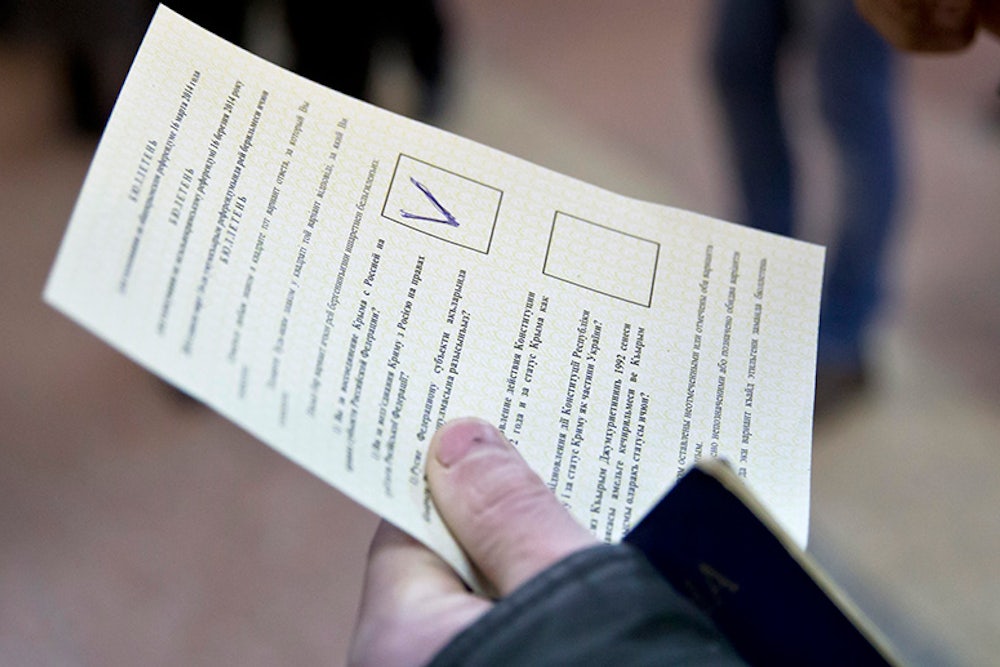Today, Vladimir Putin signed a declaration that, based on the results of yesterday's referendum in Crimea, Russia recognizes the peninsula as an independent country. Starting today.
What does it mean? Unclear.
The way I see it, there are two options.
Option 1: Abkhazia redux. Have you heard of the great and glorious republic of Abkhazia? It was once a province of Georgia, but after the Russian-Georgian War of 2008, it became an independent nation, recognized by Russia, Venezuela, Nicaragua, a couple islands in the Pacific, and no one else. Abkhazia, just across the border from Sochi, is still war-ravaged and dependent on the Kremlin for money, and it has made any relations between Russia and Georgia near impossible. But it taught, in Moscow's view, an important lesson to Tbilisi, Washington, and Brussels: this is our backyard, and don't you even think of recruiting former Soviet republics into your little Western clubs.
Option 2: Annexation. Recognizing Crimea's independence, even if Russia is alone in doing so, makes annexing Crimea a little cleaner, legally. Russians, I've written before, love following the letter of the law in order to rape its spirit.
What we know now is that we know nothing now. Putin, as always, is moving slowly, but deliberately, carefully leaving his options open while testing the waters of international response. He may decide to keep Crimea as a vassal state stuck in the limbo of Abkhazia and South Ossetia, or he may move to make it another republic inside the Russian Federation. He probably has not yet decided, and the next few days—and the Western response—will prove critical.
It's not over till it's over, folks.
